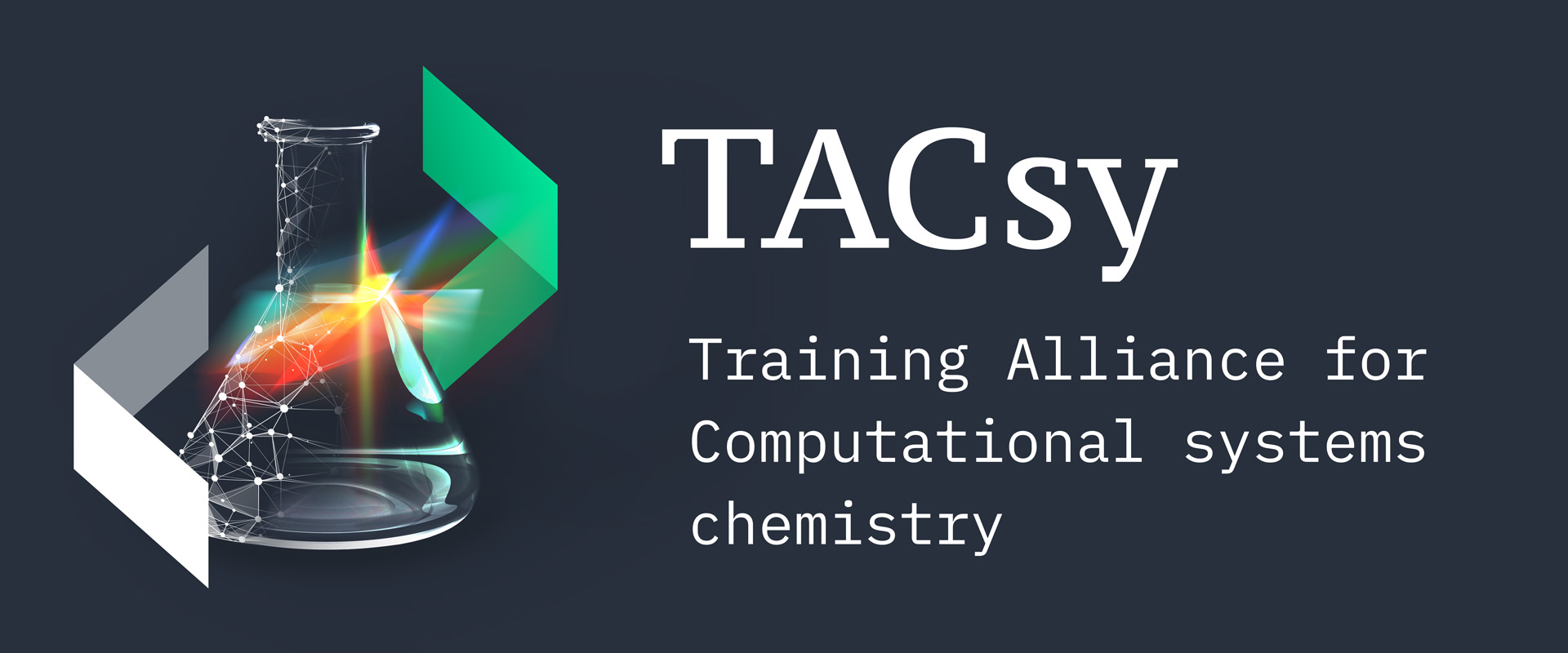
Training Alliance for Computational systems chemistry _ TACsy
A Doctoral Network programme funded by the Marie Sklodowska-Curie Actions to drive scientific excellence and innovation

Many key questions and challenges in research, industry, and society involve large and complex Chemical Reaction Networks (CRNs). Examples of such challenges include: understanding the regulation of metabolic networks in humans; planning and optimizing chemical synthesis in industry and research labs; modeling the fragmentation of molecular ions inside mass spectrometers; developing personalized medicine; probing hypotheses on the origins of life; and monitoring environmental pollution in air, water and soil.
Much of classical chemistry focuses on a small set of molecules and reactions at a time. Systems chemistry is an emerging field that addresses the need to study larger CRNs, such as those in the challenges listed above. Due to the size and combinatorial complexity of these systems, it is unfeasible to manually analyze their properties and explore their design space. The field is therefore in strong need of new computational methods to assist in analysis, modeling, and design.
Members of the consortium behind the Training Alliance for Computational Systems Chemistry (TACsy) are constructing ground-breaking new computational methods for analyzing large CRNs. In TACsy, we will develop and unfold the potential of these methods and we will train a new generation of 14 excellent Doctoral Candidates (DCs) capable of evolving and applying these methods in research and industry.
